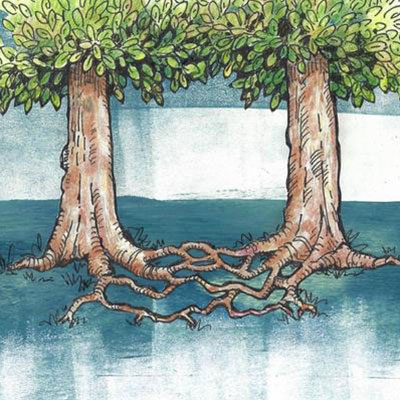Institutional Trust
Global Trust In Self
“It is up to everybody to work out their own set of principles to guide their decisions.”
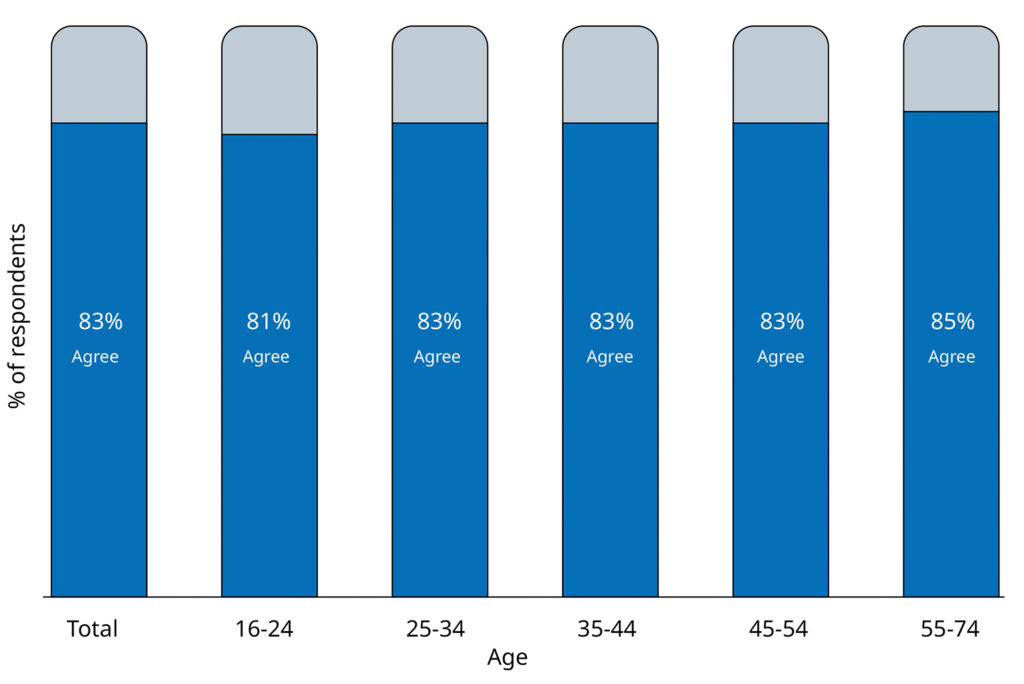
Self Confidence
Especially among youth, trust in institutions to solve societal problems is waning as trust in the agency of individuals increases.
In most countries, people show greater trust toward their neighbors over larger organizations like governments. Trust in neighbors also often supersedes trust in experts.
Rising wealth tends to erode the necessity of local social bonds and lead to narrower relational networks. The absence of social contact increases the likelihood of growing levels of mistrust. Trust of others, especially across difference, requires regular contact and collaboration for shared civic goals.
Trust In Neighborhoods
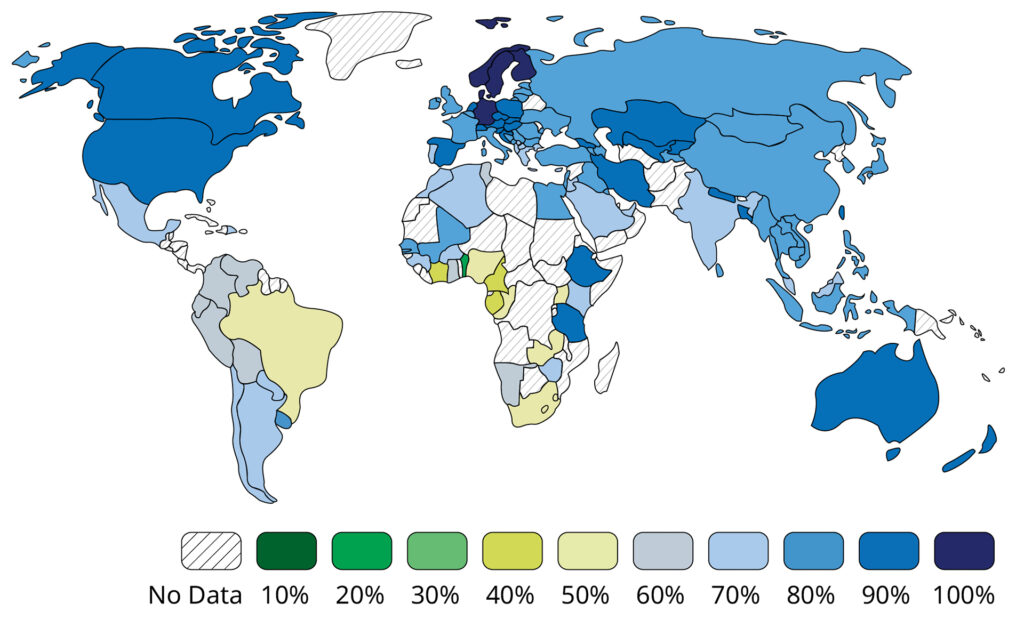
Trust In Government
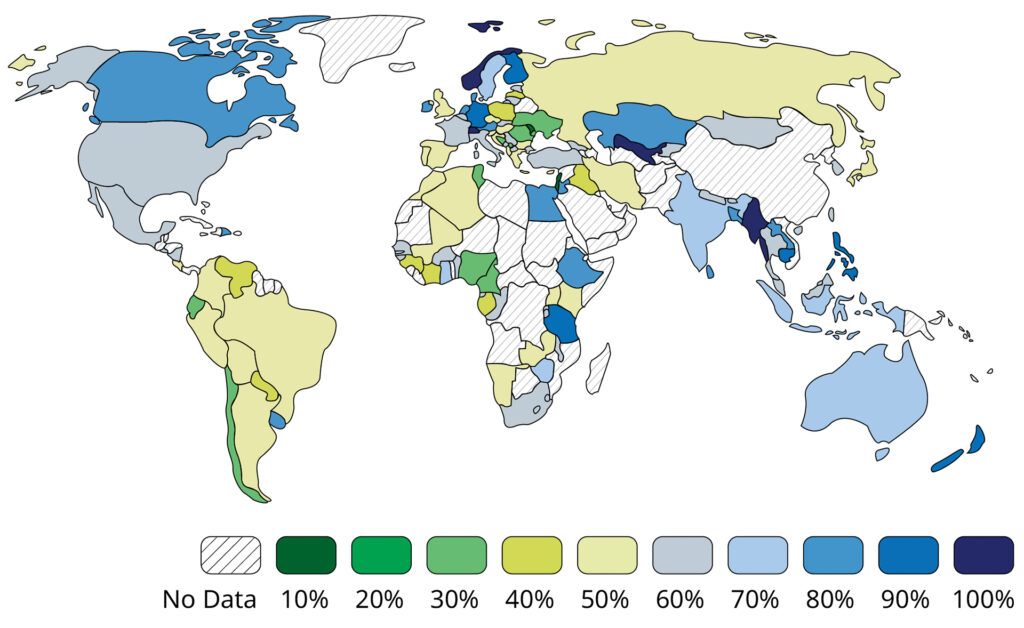
Trust In Scientists

Trust In Journalists

Global Perception Of Intitutions
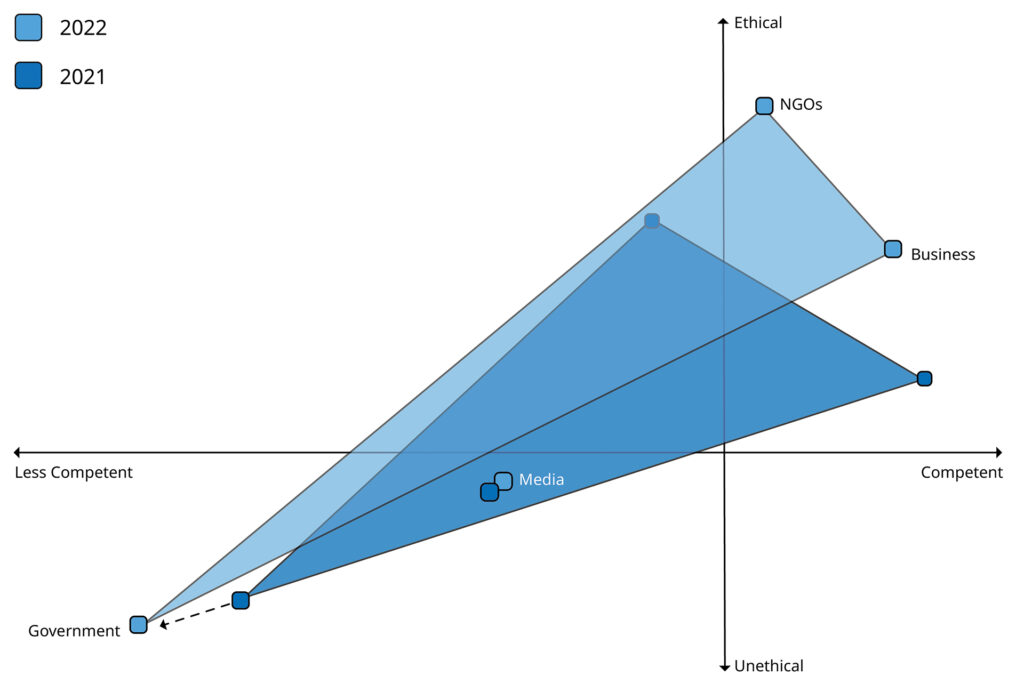
Political Crisis
Institutional trust is declining across all sectors, with only businesses seen as both ethical and competent institutions. NGOs (which includes faith-based NGOs) are seen as ethical but less competent than businesses.
Growing income inequality and the ‘echo chamber’ effect of the internet are central causes of declining institutional trust and growing social polarization.
Global trust in political bodies is abysmal, as businesses are viewed as a stronger unifying force in society than governments.
Societal Division

Global Institutional Distrust
Numbers = Percent of population who trust the institution
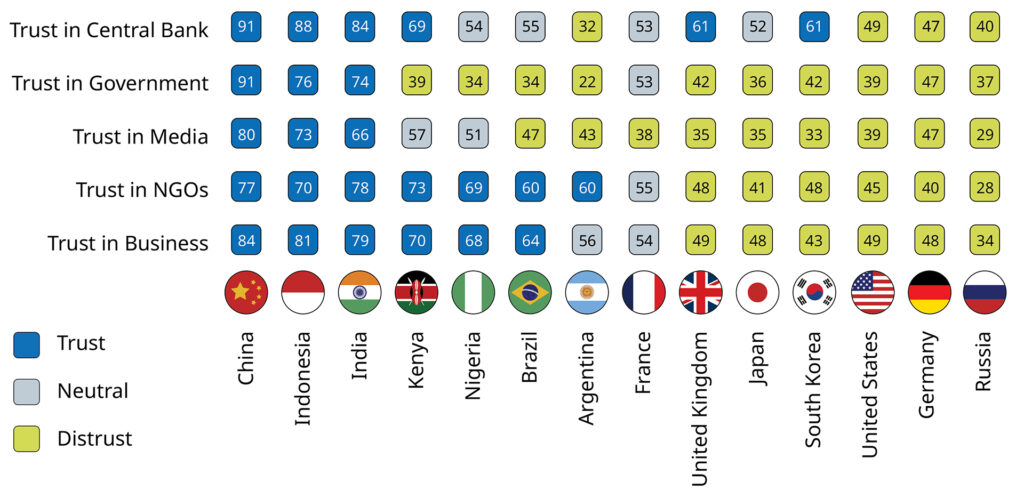
Varied Mistrust
Democracies around the world are facing a crisis of civic trust. By contrast, citizens in authoritarian governments display higher levels of confidence in all sectors of society. More urbanized societies – those most prevalent in the Global North – also display lower levels of trust. The process of urbanization typically severs broad social ties, creating smaller relational networks and thus less opportunity for sustained contact.





